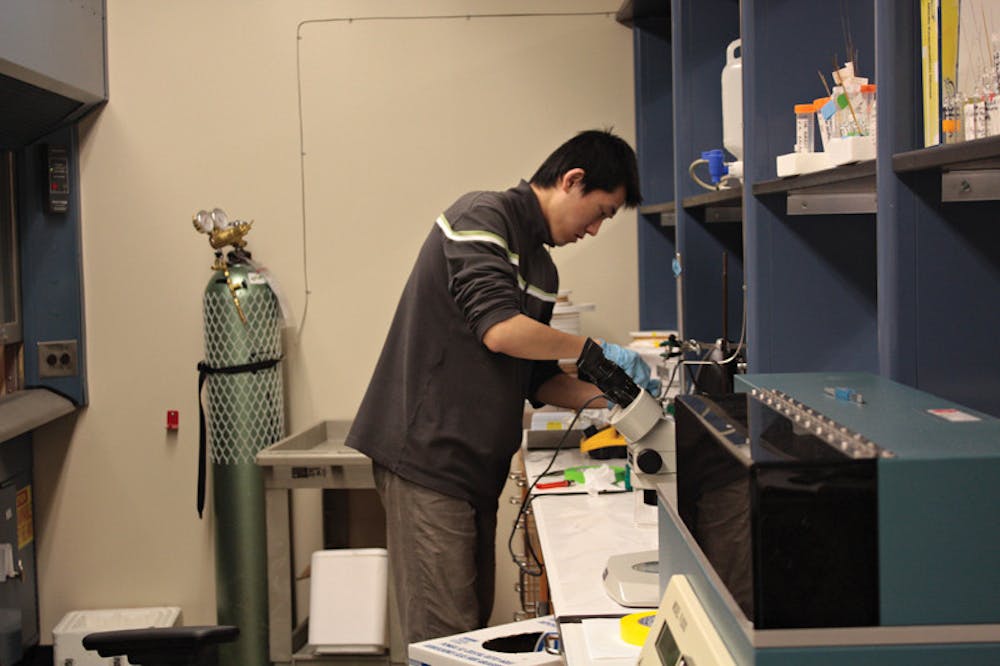For the first time since 1993, undergraduates will receive funding from a Hughes Grant to conduct biomedical research. This summer, 24 sophomores and juniors will take part in a research program funded by the $1 million grant, but this number will increase to 32 students in summers to come, according to Professor of Medical Science Michael McKeown, a key figure in planning the program.
The grant will help increase the University's presence as a research institution in biomedical sciences, according to the most recent status report on the Plan for Academic Enrichment, published in October.
The Hughes Grant is given every year to a number of institutions and individuals for biomedical research. Institutions meeting certain eligibility criteria are invited to apply and can then send in applications and proposals, according to the Howard Hughes Medical Institute website. In 2010, the institute awarded $79 million to universities and researchers, according to its website.
Before this year, Brown was among the few research institutions that did not receive funding, McKeown said.
But last year, the University was one of nearly 200 institutions to receive an invitation from the institute to apply for the grant. Wendy Lawton, associate director of corporate and foundation relations, and Elizabeth Francis, director of corporate and foundation relations in the Division of Biology and Medicine, initiated plans for a proposal, with McKeown joining the efforts soon after. The University submitted a proposal, which was returned with comments on what needed to be improved or changed. The planners sent a second draft in July and learned they had been awarded the grant in August. The University received $1 million out of a possible $2.2 million, McKeown added.
The grant money will be used for two separate aims, McKeown said. There will be a summer research program for sophomores and juniors, and three new courses will also be developed — two for the science and society concentration and one in computational biology for first- and second-year students. Students will also learn how to do "real science" by working in small groups in labs with the support of teaching assistants and professors, he said.
"We are trying to have a mixture of talents," McKeown said, referring to how participants will be selected for the program. Sixty-two applications were sent in before the Feb. 16 due date.
The program aims to train sophomores and juniors who may not already have found their place in a lab but who could potentially conduct their own research during the rest of their undergraduate careers after participating in the program.
There will be three different groups working on three different research projects this summer, according to McKeown. One group will work on cell transplantation design with bioengineering modules under the leadership of Jeff Morgan, associate professor of medical science, while another group will research fly neurology.
"The beauty of this is that these are projects that faculty members want to see done," McKeown said.

ADVERTISEMENT




